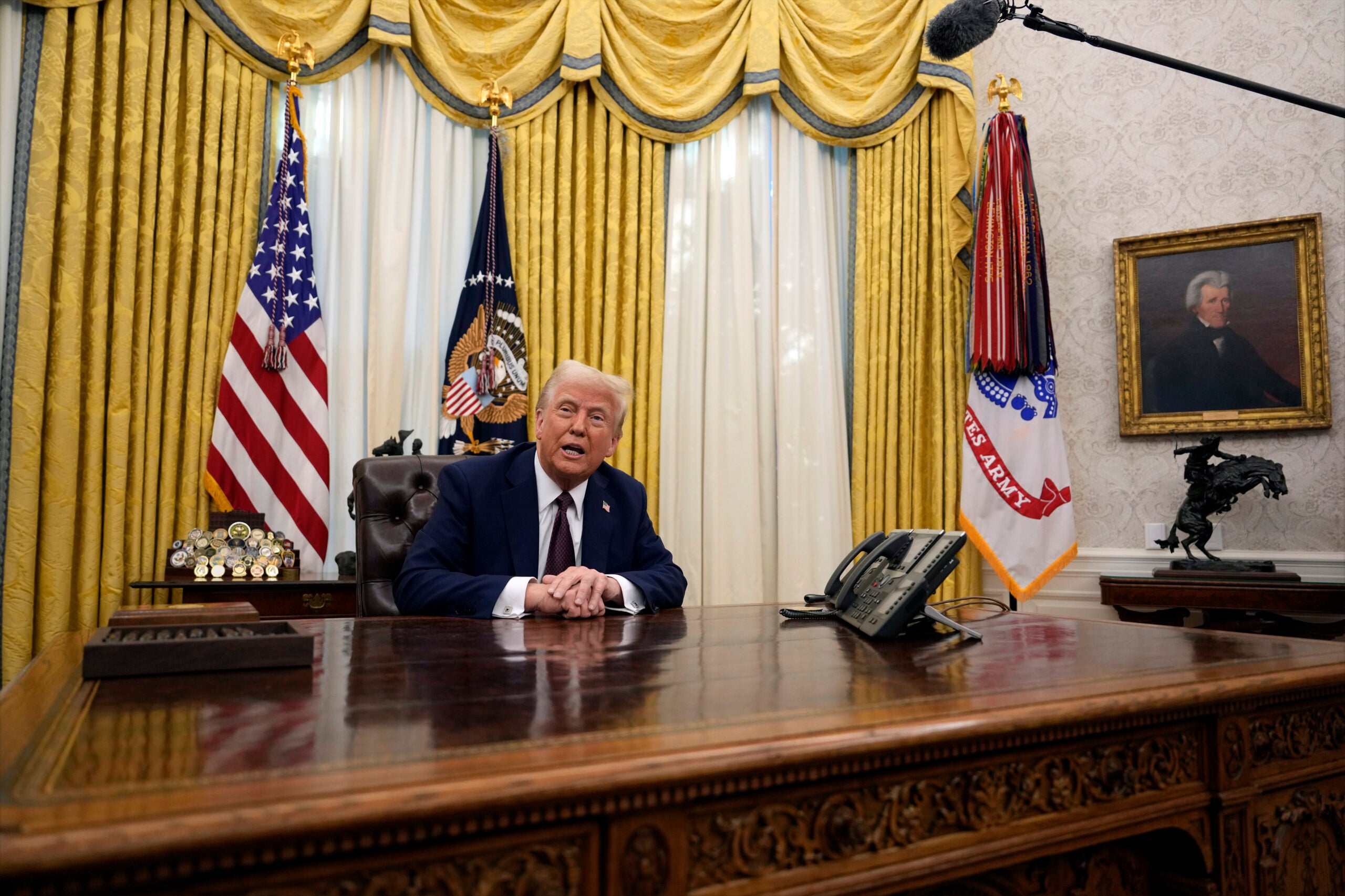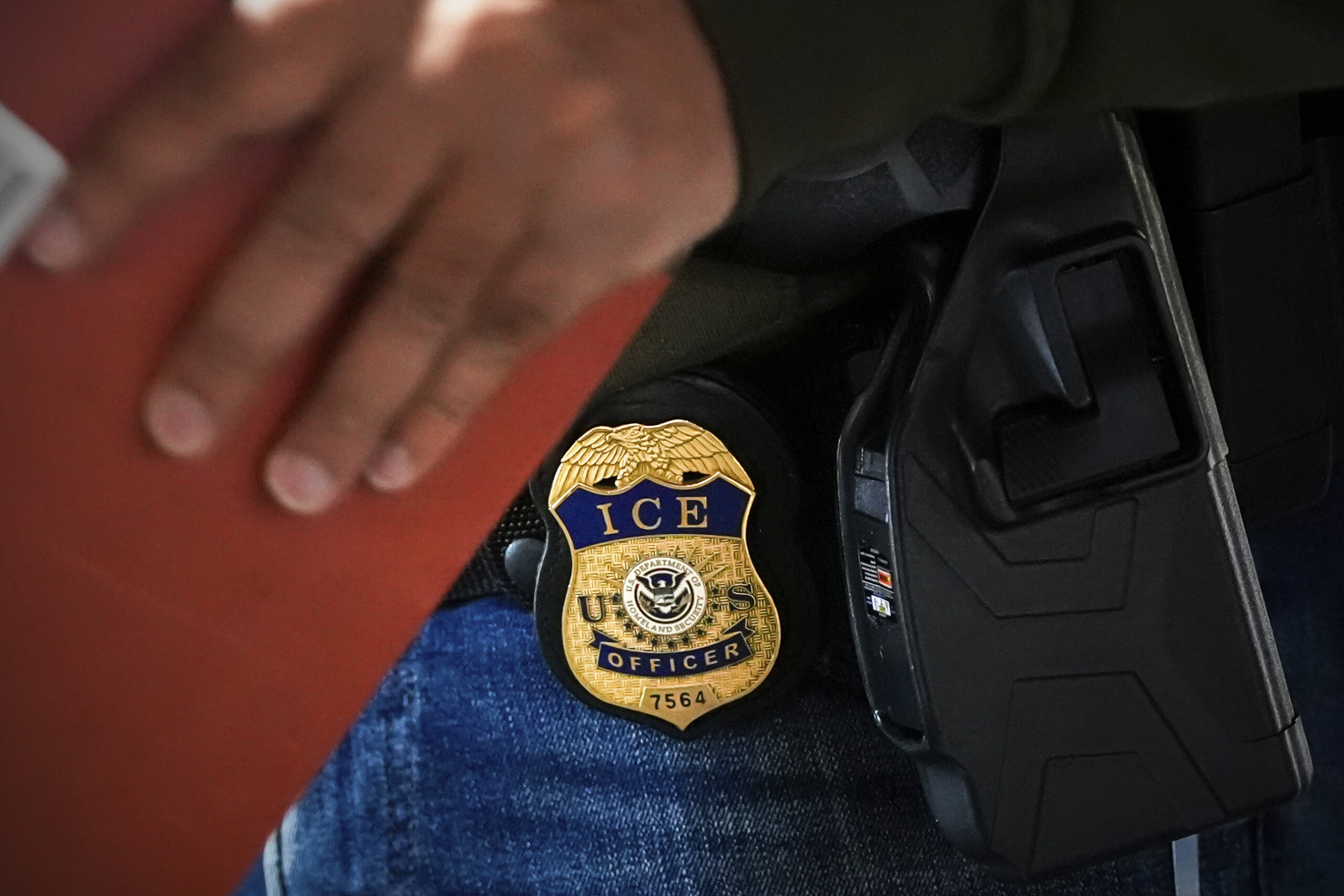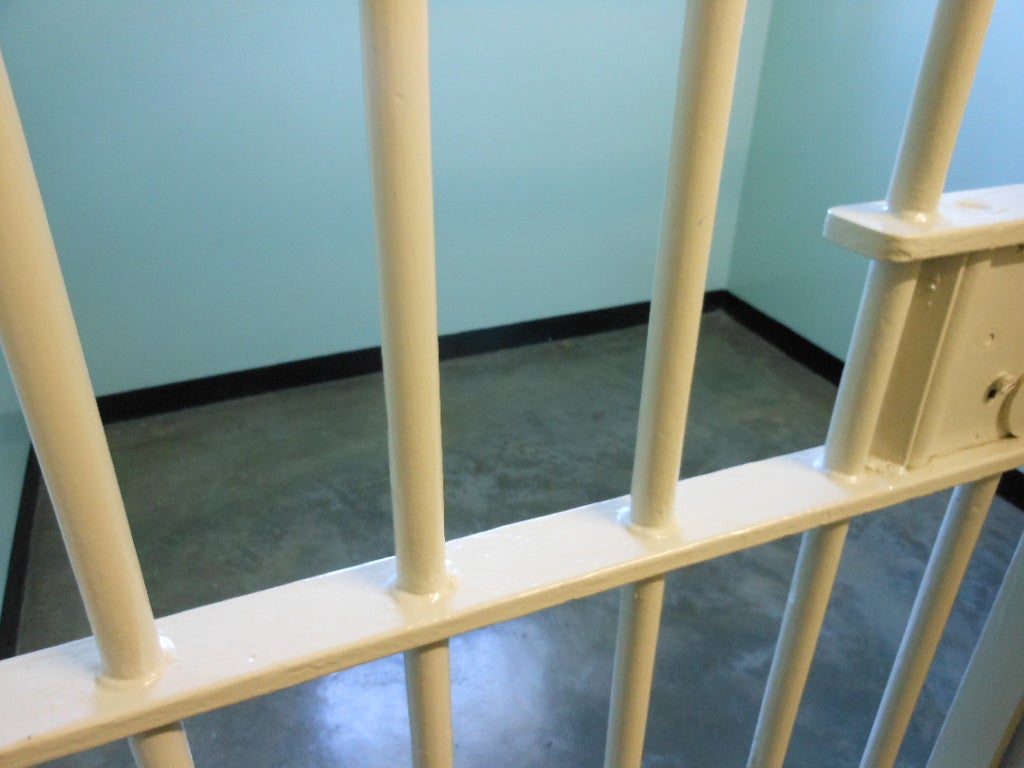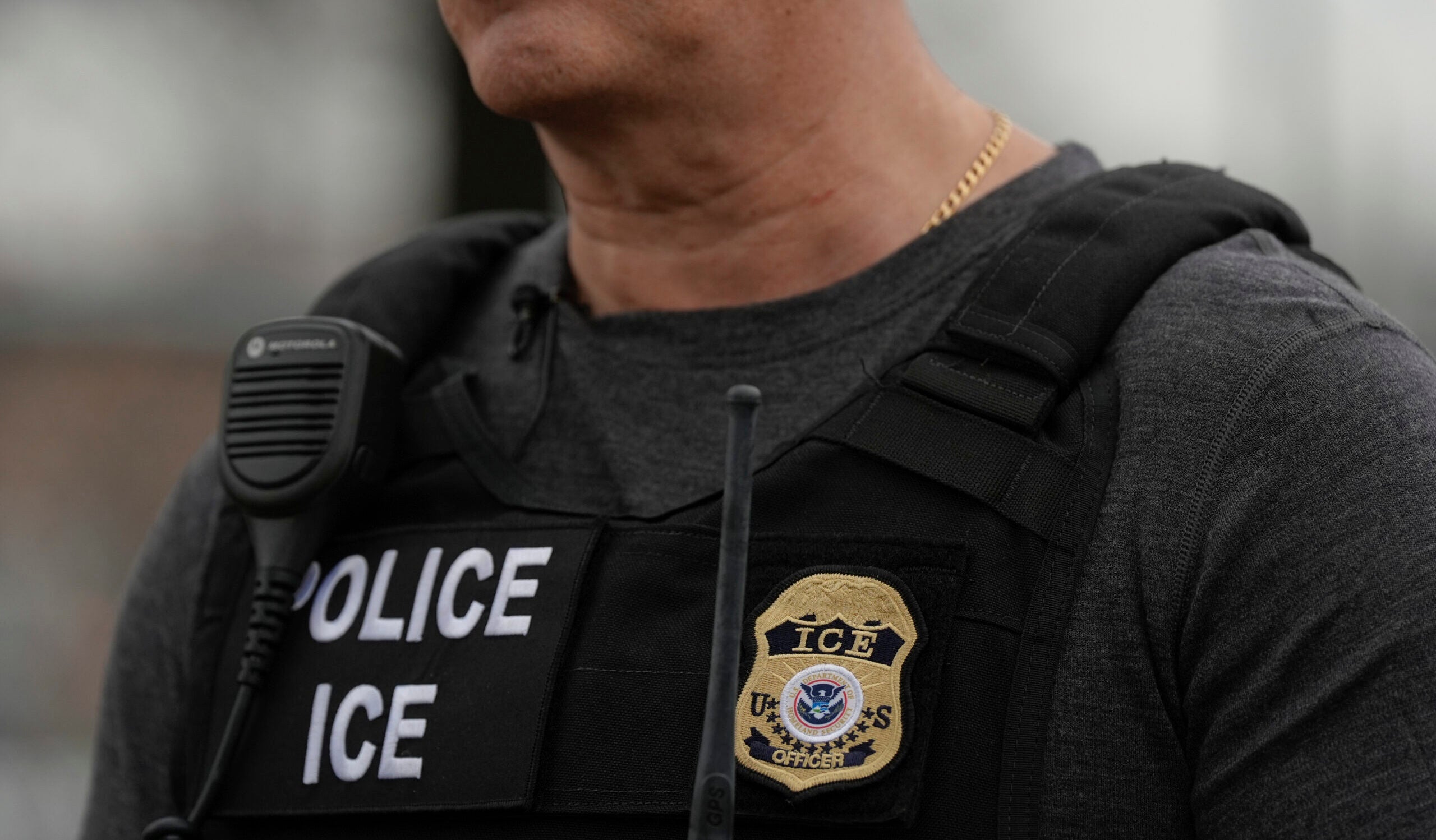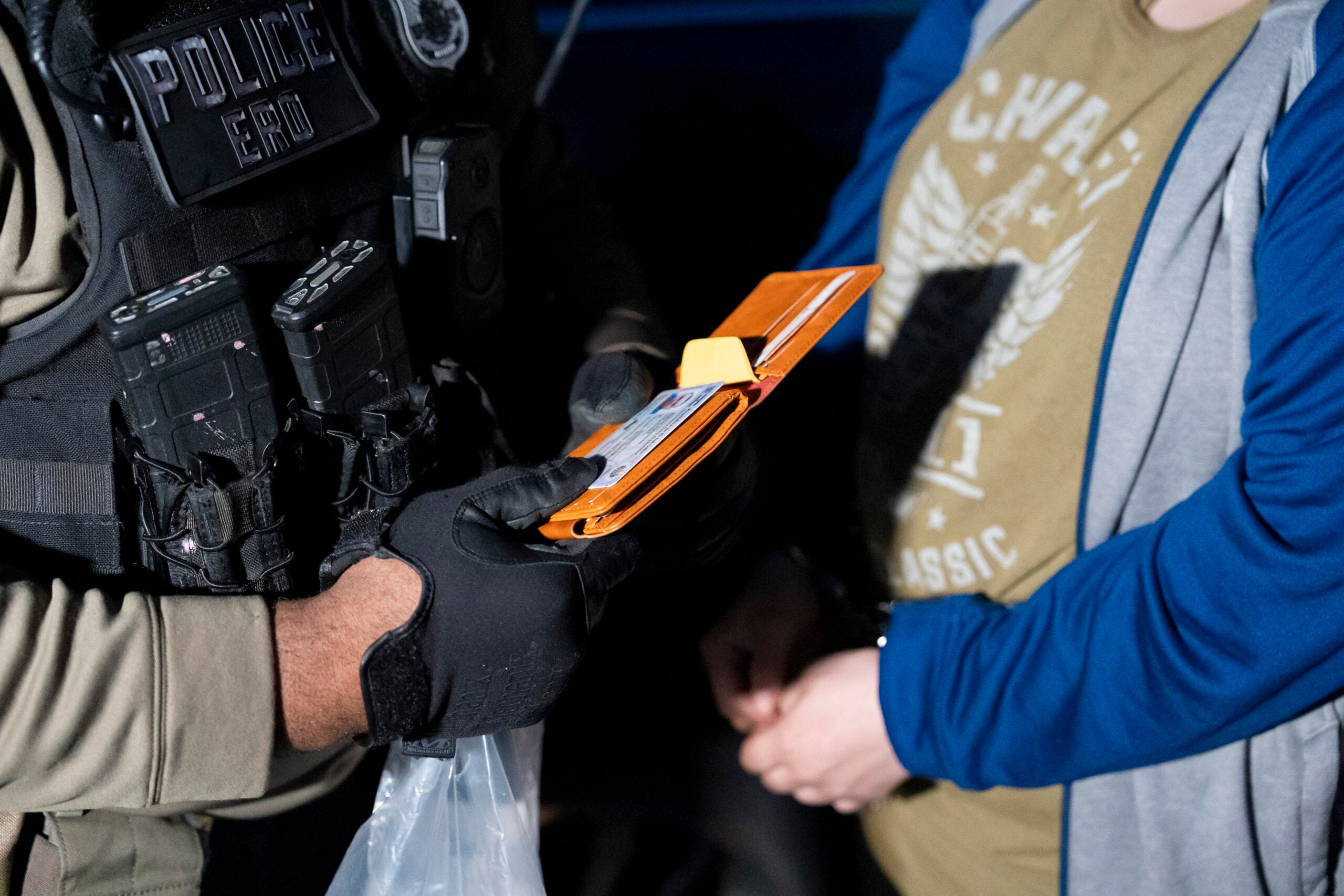President Donald Trump’s Department of Justice is warning that state and local officials could face criminal charges if they don’t cooperate with federal immigration authorities.
In an all-staff memo this week, acting Deputy U.S. Attorney General Emil Bove wrote that federal law “prohibits state and local actors from resisting, obstructing, and otherwise failing to comply with lawful immigration-related commands or requests.”
The memo said the Department of Justice would investigate local authorities for “any such misconduct” and warned that officials could face prosecution if they’re found to have obstructed federal functions.
News with a little more humanity
WPR’s “Wisconsin Today” newsletter keeps you connected to the state you love without feeling overwhelmed. No paywall. No agenda. No corporate filter.
Legal expert: Feds have limited authority to prosecute local officials over non-compliance
The memo, issued just days after Trump began his second term as president, is an escalation of Trump’s hard-line rhetoric, said Kevin Johnson, a law professor at the University of California, Davis.
“This is a very public, a very political, very high-profile and a very high-decibel-level message being sent out there, and it’s being interpreted by the immigrant community as a clear message that they’re under attack and vulnerable and basically bad things may happen,” Johnson said.
Nonetheless, Johnson believes it’s “very unlikely” that local or state officials will actually be prosecuted as a result of non-cooperation with U.S. Immigration and Customs Enforcement, known as ICE.
“I see this more as sort of saber-rattling,” he said. “(It’s) trying to exert political pressure on state and local agencies.”
Federal prosecutors would only have the legal authority to bring criminal charges against local agencies for non-compliance with immigration laws under “very narrow” circumstances, Johnson said.
“For example … if local sheriffs decided to blockade someplace where the federal immigration enforcement officers wanted to do a raid, that might be obstructing a federal enforcement activity and subject to prosecution,” Johnson said. “But I don’t see state (or) local law enforcement agencies doing that.”
Johnson said there might not be as much cooperation as the Trump administration would like, but “it’s hard for me to see U.S. attorneys bringing criminal prosecutions.”
To what extent do Wisconsin communities cooperate with ICE?
The extent to which local law law enforcement leaders choose to work with U.S. Immigration and Customs Enforcement has drawn renewed attention after Trump won reelection on a promise to carry out the largest deportation in U.S. history.
The definition of a sanctuary community can vary, but they’re typically known as places where authorities avoid assisting federal officers with deportations, often by limiting the amount of information that local police share with ICE.
Trump has vowed to withhold funds from so-called sanctuary communities. And, going forward, Johnson said Trump may try to get liberal states and local governments to adopt stricter approaches to immigration in exchange for federal funding.
“President Trump is a negotiator,” Johnson said. “I could see him trying to get some kind of concessions on immigration enforcement (in exchange for) some discretionary aid that he has at his disposal.”
Johnson said that could include encouraging more communities to enter into what are known as 278(g) agreements, allowing local officers to be deputized for immigration enforcement. In Wisconsin, seven sheriff’s departments have signed onto those agreements in Brown, Fond du Lac, Manitowoc, Marquette, Sheboygan, Waukesha and Waushara Counties.
At the same time, other local law enforcement leaders in Wisconsin are assuring residents that immigration status is unlikely to come up during routine interactions with police.
In the city of Milwaukee, for instance, police policy prohibits officers from arresting or detaining someone solely because of a suspected immigration violation. The policy states that police should only cooperate with ICE if there’s a warrant out and if the person in question is involved with a “severe” crime, such as a “violent felony,” sexual assault, terrorism or “participation in a transnational street gang.”
In response to the DOJ’s memo, a spokesperson for Milwaukee Mayor Cavalier Johnson said the mayor’s office will consult the city attorney about potential effects of the federal directive.
“Milwaukee will continue to treat all residents, irrespective of immigration status, with appropriate respect and dignity,” spokesperson Jeff Fleming wrote in a brief statement. “The Mayor strongly supports efforts to protect the rights of individuals who are unjustly targeted.”
In Milwaukee County, the sheriff’s office has an ethics code saying that deputies shouldn’t detain someone solely for a civil violation of immigration law. The policy says that deputies can detain someone, however, for suspected criminal immigration violations.
In Dane County, a sheriff’s spokesperson said the office has not received any communication from the DOJ and it would be “premature” to comment on what the effects of the memo would be in Dane County.
In a separate email, when asked about the threat of prosecutions by DOJ, Dane County District Attorney Ismael Ozanne told WPR his office operates under the rule of law.
“I believe there must be a violation of the law before any prosecution may be initiated,” Ozanne said.
Wisconsin Public Radio, © Copyright 2025, Board of Regents of the University of Wisconsin System and Wisconsin Educational Communications Board.

